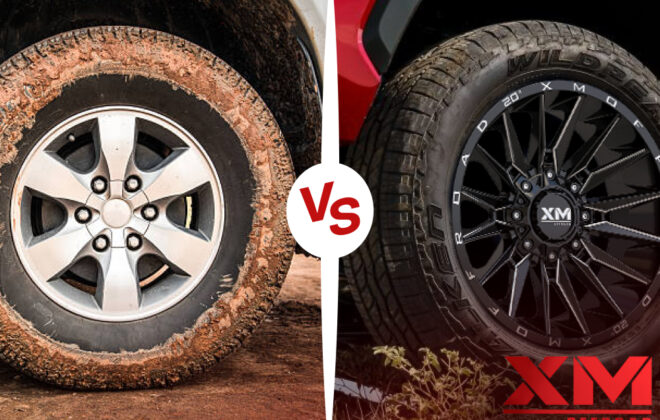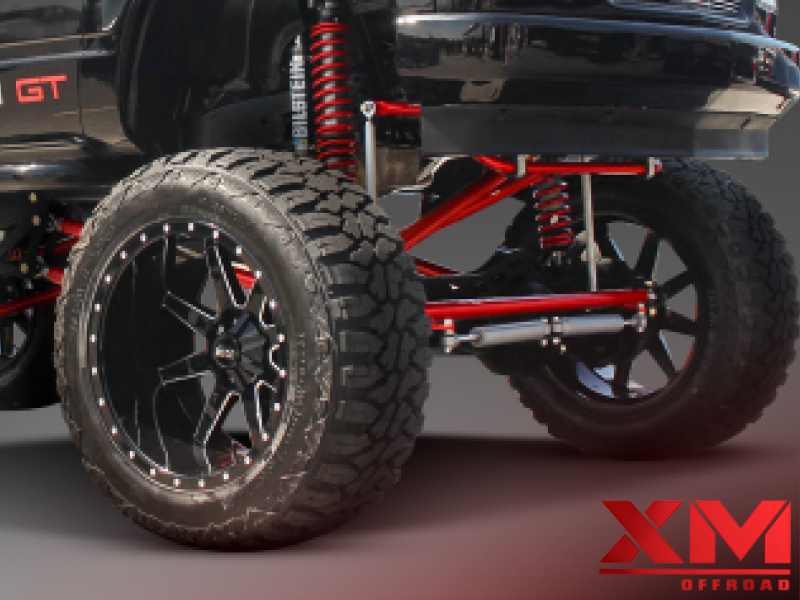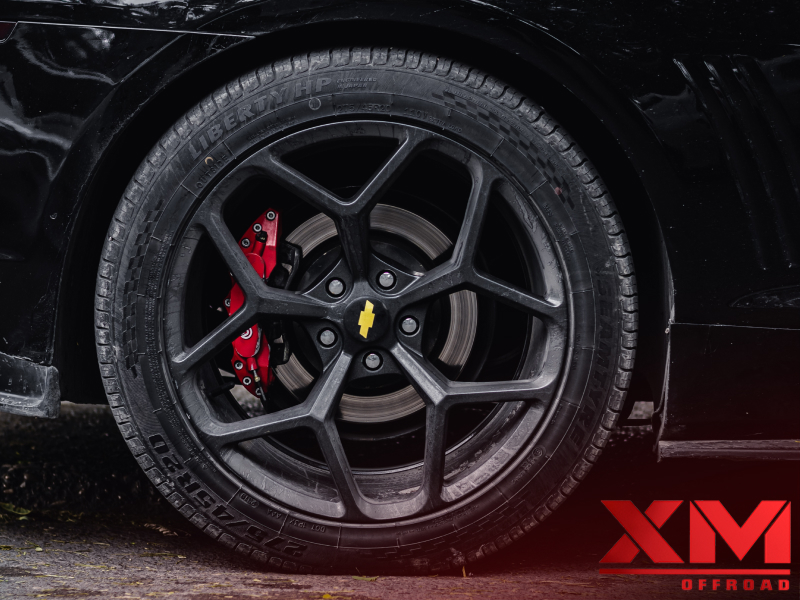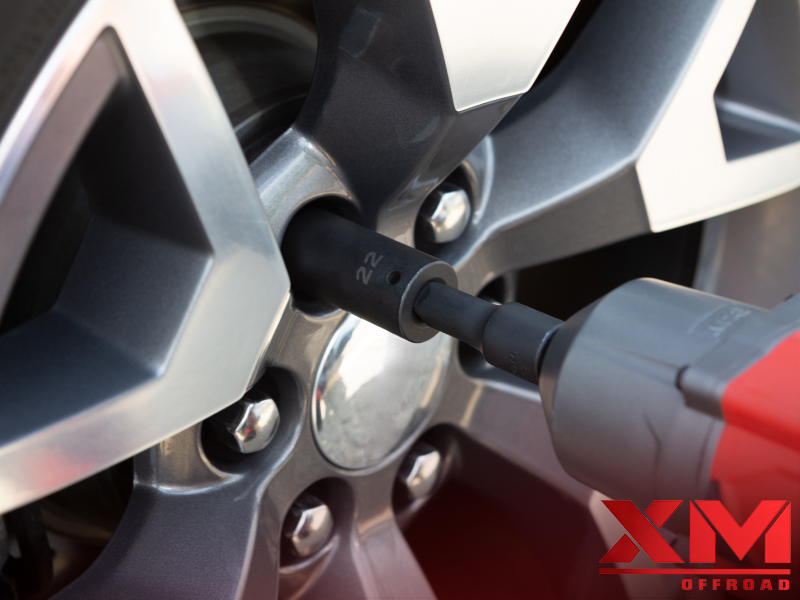Many truckers choose aluminum wheels because they look more appealing and are lighter than steel wheels. However, they may not be strong enough for off-highway use. This is particularly important for trucks used in logging or mining.
Both Aluminum and steel wheels have their merits, and understanding the differences between them can help you make an informed choice. In this blog post, we will explore the great debate of aluminum vs. steel wheels, providing you with essential information to guide your decision-making process.
It is essential to weigh the pros and cons of each wheel against your fleet’s needs. Regardless of what type you choose, it is important to maintain them properly.
Strength and Durability:
Steel wheels have long been known for their robustness and durability. They can withstand rough road conditions, potholes, and impacts without sustaining significant damage. Steel wheels are less likely to bend or crack under heavy loads, making them an excellent choice for off-road enthusiasts and commercial vehicles.
On the other hand, aluminum wheels offer a lightweight alternative. Although aluminum is inherently less dense than steel, these alloy wheels provide remarkable structural integrity without sacrificing durability. They are particularly suitable for everyday driving and city use.
Performance and Handling:
Weight plays a crucial role in a vehicle’s performance and handling. This is where aluminum wheels take the lead. Due to their lighter weight, they offer several advantages over steel wheels. The reduced unsprung mass helps improve acceleration, braking, and fuel efficiency. Vehicles equipped with aluminum wheels tend to have more responsive handling, as they allow the suspension system to react quickly to changes in road conditions.
Steel wheels, while heavier, offer a different advantage in terms of ride comfort. Their additional weight contributes to better shock absorption, resulting in a smoother driving experience. This characteristic makes them a preferred choice for larger vehicles like trucks and SUVs, where comfort and stability are paramount.
Aesthetics and Customization:
If you’re looking to enhance the visual appeal of your vehicle, aluminum wheels are the way to go. They offer a sleek and modern look that can instantly elevate the overall appearance of your car. Aluminum wheels often feature intricate designs and a wide range of finishes, allowing you to customize your vehicle’s style to match your preferences.
Steel wheels, although less visually striking, have their charm. They exude a classic, utilitarian aesthetic that can complement certain vehicle designs. Additionally, steel wheels are typically more affordable than their aluminum counterparts, making them an attractive option for budget-conscious car owners.
Maintenance and Cost:
When it comes to maintenance, aluminum wheels have a clear advantage. They are highly resistant to corrosion and rust, which can be a common issue with steel wheels, especially in regions with harsh weather conditions. Aluminum wheels require minimal upkeep, making them a convenient choice for those seeking a hassle-free ownership experience.
On the cost front, steel wheels are generally more budget-friendly. They are less expensive to manufacture, and their durability ensures they can withstand wear and tear for an extended period. However, it’s worth noting that the price gap between steel and aluminum wheels has narrowed in recent years, making the latter more accessible to a wider range of consumers.
XM Car Wheels:
XM Car wheels are a great option for those looking to upgrade their ride’s appearance. These wheels are available in a variety of colors and finishes, so you can find the perfect setup for your vehicle. They also come with a limited six-month structural warranty.
The front wheel weighs 818 grams, and the rear 934 grams sans Center Lock rotor mount adapters, so they’re not light. But they’re surprisingly stiff and responsive for such a massive-looking wheel build.
This directional design from XM Offroad comes in black and red with a concave face to emphasize an aggressive stance. It features a spoke pattern that flows around each window with milled accents that add depth and style to the face of the wheel.
20 Inch Black Rims:
Whether you’re building your dream off-road rig or simply want to add a tough new look to your ride, 20 inch rims are the way to go. These larger wheels offer a more aggressive look and a wider tire footprint that enhances your vehicle’s overall handling capability.
You’ll find a huge selection of black 20-inch rims from top brands like Fuel, Black Rhino, Moto Metal, and more. Choose from a variety of styles, including rugged off-road designs and clean street looks that make your truck the center of attention.
When paired with the right tires, your upgraded wheels and tires will deliver a great blend of performance and style.
20 Inch Chrome Rims:
In addition to their durability, 20-inch steel wheels are also ideal for inclement weather. They are heavier than aluminum wheels, which helps to increase the amount of friction between the tire and the road, making them more likely to grip snow and ice.
Ultimately, the decision to choose one type of wheel over another should depend on the driver’s preferences and needs. For example, some drivers may prefer the look of larger wheels, while others might prioritize a comfortable ride on bumpy roads. Finally, some drivers may want to consider the cost of the wheel and tire package.
Most wheels have a series of numbers that indicate the date and location of manufacture. This information can help determine if the rim is genuine or not, and it can also give you an idea of its overall quality.
20 Inch Machined Rims:
20-inch machined rims are becoming popular on many vehicles. They are a nice upgrade for your car, especially if you want to add more style and performance. However, before you buy these wheels, be sure to consider all of the pros and cons.
A larger wheel’s narrower sidewall can transmit more impact forces into a vehicle’s interior. Additionally, a smaller sidewall doesn’t insulate the tire as well against potholes and curbs. This can lead to damage or even a bent rim.
Bigger wheels also add more weight to the car, which can cause problems with handling and acceleration. The extra unsprung weight can also cause the tires to wear out faster. Moreover, some electronic safety features may not function properly when these wheels are installed. Therefore, you should only install them on your car if it is necessary. Otherwise, you may regret it later. Find top-brand wheels at wholesale prices, plus free shipping on all orders.
Conclusion:
In the great debate of aluminum vs. steel wheels, there is no definitive winner. The choice ultimately depends on your specific needs, preferences, and driving conditions. Aluminum wheels excel in terms of performance, aesthetics, and ease of maintenance, while steel wheels offer strength, durability, and affordability. Consider the factors that matter most to you and make an informed decision that aligns with your priorities. Whichever option you choose, rest assured that both aluminum and steel wheels can provide a reliable and stylish foundation for your vehicle.
Read Also: Refined and Polished: Experiencing the 2023 Mercedes-Benz GLC First Drive
FAQs
Q1) What are the key differences between aluminum wheels and steel wheels?
Aluminum and steel wheels differ in terms of their material composition, weight, strength, and cost. Aluminum wheels are made from lightweight alloys, providing improved fuel efficiency and better handling. They are also known for their aesthetic appeal and corrosion resistance. On the other hand, steel wheels are heavier and less visually appealing but offer superior strength and durability. They are often more affordable than aluminum wheels.
Q2) Which type of wheel is more fuel-efficient: aluminum or steel?
Aluminum wheels are generally more fuel-efficient compared to steel wheels. Due to their lightweight nature, aluminum wheels reduce the overall weight of the vehicle, resulting in improved fuel economy. The reduced weight helps decrease the rotational mass, allowing the engine to work more efficiently and consume less fuel. Therefore, if fuel efficiency is a priority, aluminum wheels are a preferred choice.
Q3) Are aluminum wheels more expensive than steel wheels?
Yes, aluminum wheels tend to be more expensive than steel wheels. The cost difference is primarily due to the difference in material and manufacturing processes. Aluminum wheels are made from lightweight alloys and involve more intricate production methods, which contribute to their higher price tag. Steel wheels, being made from a simpler and more abundant material, are generally more budget-friendly.
Q4) Are steel wheels more resistant to damage than aluminum wheels?
Steel wheels are known for their robustness and resistance to damage compared to aluminum wheels. They are less prone to bending or cracking when subjected to impacts, such as hitting a curb or pothole. This durability makes steel wheels a popular choice for vehicles operating in harsh conditions or off-road environments where the risk of damage is higher. However, it’s worth noting that aluminum wheels can withstand normal driving conditions without any issues and are designed to handle typical road hazards.
Q5) Do aluminum wheels require more maintenance than steel wheels?
Both aluminum and steel wheels require regular maintenance, but the specific needs may differ. Aluminum wheels are more resistant to corrosion, but they can be prone to oxidation and pitting if not properly maintained. To keep them in good condition, it’s recommended to clean them regularly using appropriate products and ensure that they are protected with a layer of wax or sealant. Steel wheels, while less susceptible to oxidation, can be more prone to rust formation, especially in regions with harsh winters or high humidity. Regular cleaning and application of anti-corrosion treatments can help maintain their appearance and longevity.



